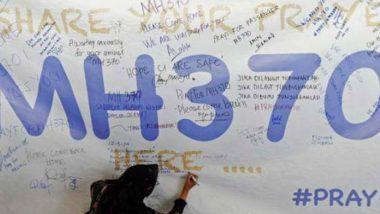Malaysia's civil aviation chief Azharuddin Abdul Rahman has quit a day after a report into the missing Malaysia Airlines flight MH370 found failures by the country’s air traffic control. The official report which was released on Monday, highlighted lapses by controllers in relation to emergency procedures as the flight went missing.
The passenger jet had been missing, the report said, for about 20 minutes before authorities sent an alert.
The report, released by the MH370 safety investigation team does not identify a culprit, but it ruled out a mechanical or computer failure as the reason the plane disappeared without a trace on March 8, 2014.
It is an admission that someone managed to thwart the systems and processes designed to keep fliers safe. “Therefore, it is with regret and after much thought and contemplation that I have decided to resign as the Chairman of Civil Aviation Authority of Malaysia effective 14 days from the date of the resignation notice which I have served today,” Azharuddin Abdul Rahman said in his resignation letter, which did not suggest that the authority was to blame for the plane's disappearance.
Azharuddin, an engineer, has headed the aviation authority since 2008. MH370 mysteriously disappeared in 2014 with 239 people on board.
Authorities believe the airplane crashed in the southern Indian Ocean. Everyone aboard is presumed dead in what has become the greatest airline mystery since the disappearance of Amelia Earhart.
Only a scattered few pieces of wreckage — and none of the victims' bodies — have been found despite two massive searches that have cost hundreds of millions of dollars.
The 495-page MH370 report highlighted the lapses of Malaysia's Air Traffic Control, which did not monitor radar continuously or determine that an emergency was occurring until well after MH370 was gone.
“There were uncertainties on the position of MH370 by both Kuala Lumpur [air traffic control center] and Ho Chi Minh [air traffic control center]," the report concluded.
Controllers in Ho Chi Minh City did not notify their counterparts in Kuala Lumpur or the air force when the aircraft did not enter southern Vietnam's airspace as planned — one of the first signs that something was wrong.
“The Air Traffic controllers did not initiate, in a timely manner, the three standard emergency phases in accordance with the standard operating procedures,” the report said.
The last contact that controllers had with the plane was when Capt. Zaharie Ahmad Shad radioed them, “Good night, Malaysian three seven zero.”
A short time later, the plane changed its flight path in a way that “probably resulted from manual inputs,” the government's report said. A system malfunction alone could not account for sudden shifts in the direction of the plane.
While there was evidence of "unlawful interference by a third party", meaning that the plane may have been manipulated off course, it was unclear who may have been responsible.
Relatives of the missing passengers expressed disappointment that no conclusive explanation for the disappearance of their loved ones had yet been offered.
(The above story first appeared on LatestLY on Jul 31, 2018 11:35 PM IST. For more news and updates on politics, world, sports, entertainment and lifestyle, log on to our website latestly.com).













 Quickly
Quickly


